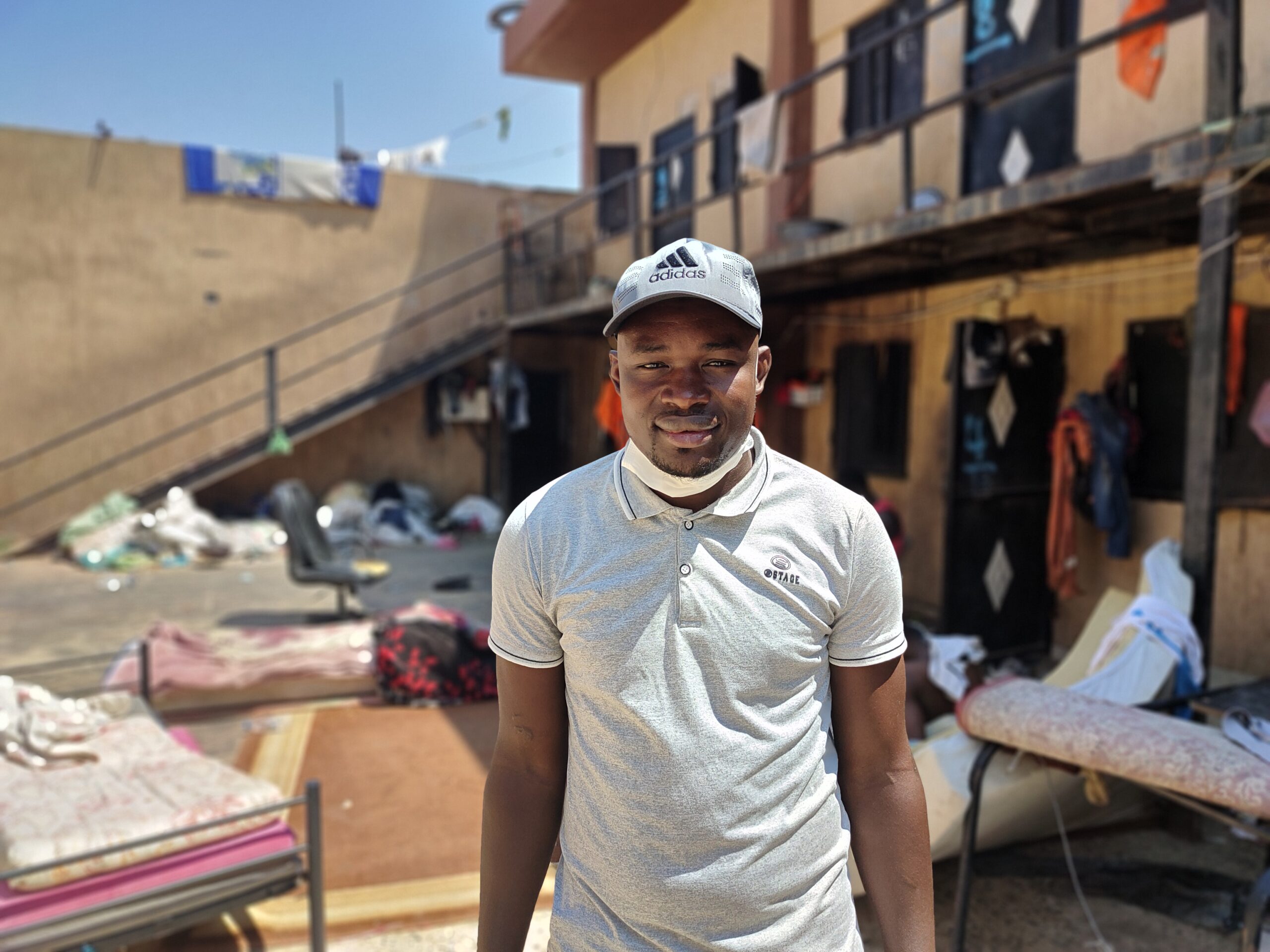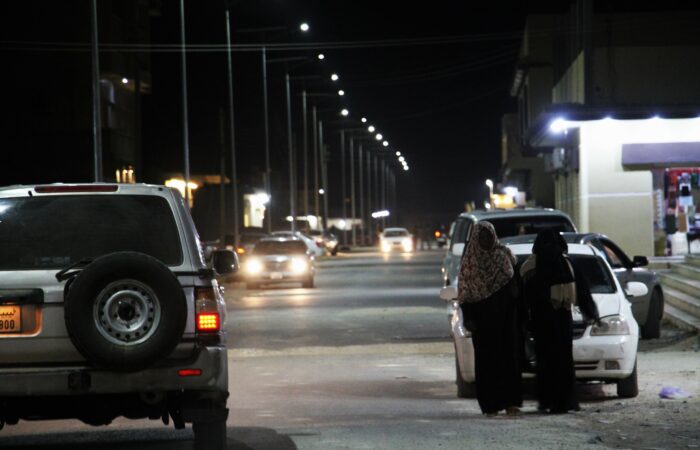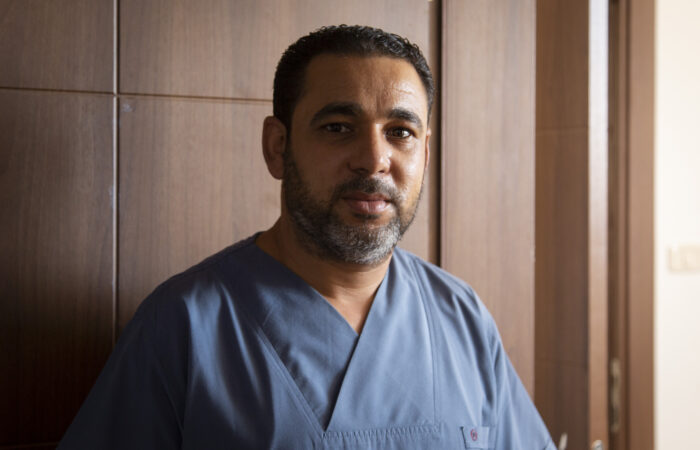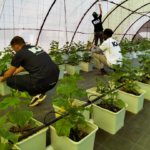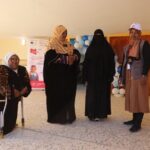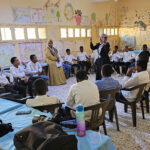In 2016, 32-year-old Sadio left his wife and two children in Mali, his home country, and walked across the desert until he reached Bani Walid, where he lived for some time. Then he moved to Tripoli, and finally settled in Al Maya, where today he works for a cleaning company. Sadio tells us that, although life in Libya is better than in Mali, it is far from being easy, especially since the COVID-19 outbreak hit the country.
“In Al Maya, there is a very small number of public healthcare facilities and those available offer insufficient services. To access medical care, we must travel 10 to 35 kilometers to Janzur or to Al Zahra Hospitals. The journey is quite challenging if there’s an emergency and no means of transport,” begins Sadio.
He turns very sad when sharing the story about the avoidable death of one of his dearest friends. “He was coughing for days, couldn’t talk and was struggling for the smallest breath. I took him to the nearest hospital, but he was rejected due to suspected COVID-19. Then we tried the Janzur hospital, but even there no help was provided. When we were referred to Abositta Respiratory Hospital in Tripoli, it was already too late: by the time we arrived, my friend had passed away. Later, we learned that the cause of death was not COVID-19 but tuberculosis, with severe lung contamination. I was in shock. I couldn’t do anything to save my friend’s life.”
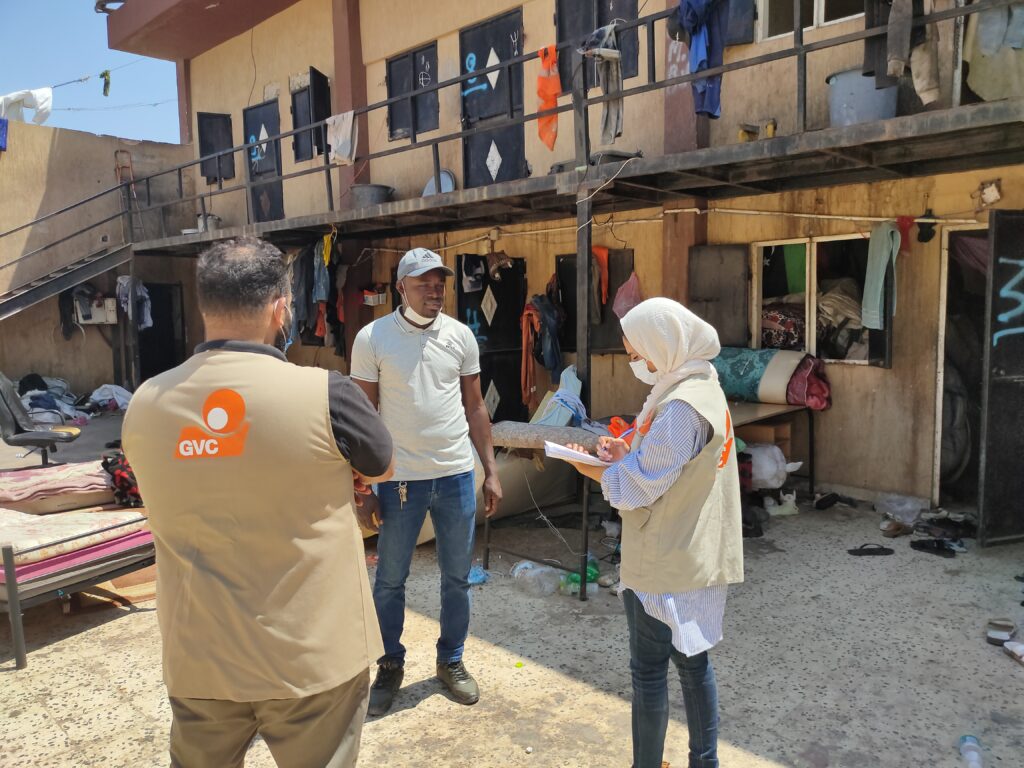
Sadio’s story resonates with that of many refugees, displaced people and migrants in Libya, where limited access to healthcare combines with the lack of basic knowledge on even the most common diseases and the means to prevent or treat them in time. To tackle this problem, the Baladiyati programme supports vulnerable communities in Libya through awareness sessions about communicable and non-communicable diseases: symptoms, prevention and the importance of early treatment and medication.
With funding from the European Union through the EU Trust Fund for Africa, the Italian Agency for Development Cooperation (AICS) has worked with the NGO WeWorld-GVC to deliver life-saving information to many in the community, including vulnerable groups such as the one Sadio belongs to. In fact, he was among the participants of the awareness session run in August 2021 by WeWorld-GVC’s community mobilizers in a refugee camp in Al Maya.
Sadio describes the experience as enriching: “I learnt facts about COVID-19 that I had never suspected. I learnt that we have the right to register in the national vaccination platform and receive free vaccination like Libyans. Also, I learnt how to protect myself and the people around me by applying basic preventive measures.” Sadio went on to say, “Most importantly, I finally felt that I truly belong here, and that my health and well-being matter. For the first time, I didn’t feel excluded but part of a community.” “Having access to quality healthcare is among the major challenges non-locals face in Libya. With improved services, I believe our lives will be easier. My biggest hope is that one day I could just go to any public healthcare facility, be accepted and get the needed treatment and feel safe. I am glad to see that there are programmes, such as Baladiyati, which work in that direction.”
This story was written by AICS based on content collected on ground by We World-GVC
Photo credit: We World-GVC

